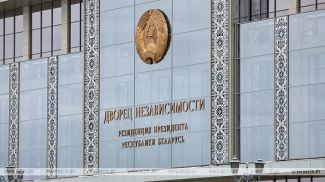
MINSK, 5 September (BelTA) – A proposal to establish a crypto bank in Belarus was presented to Belarusian President Aleksandr Lukashenko during a meeting on developing the digital token sector, BelTA has learned.
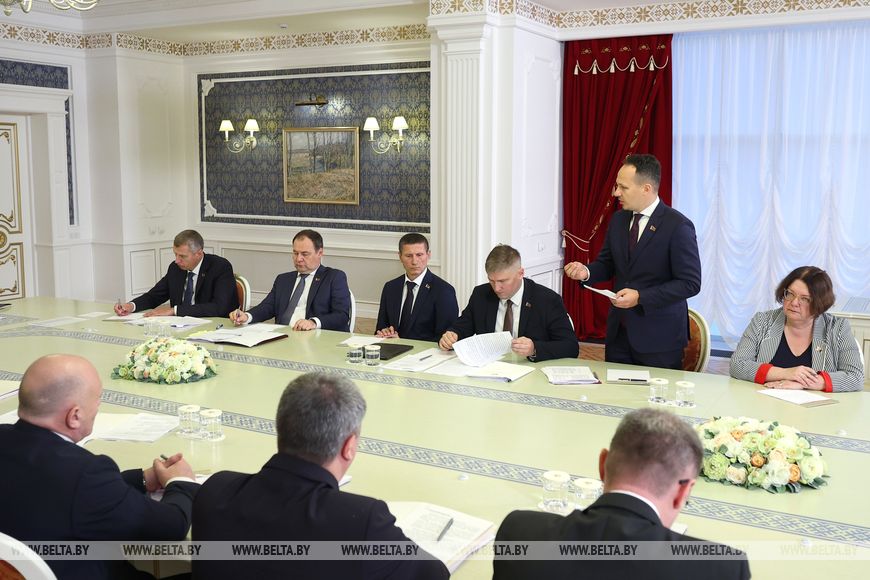
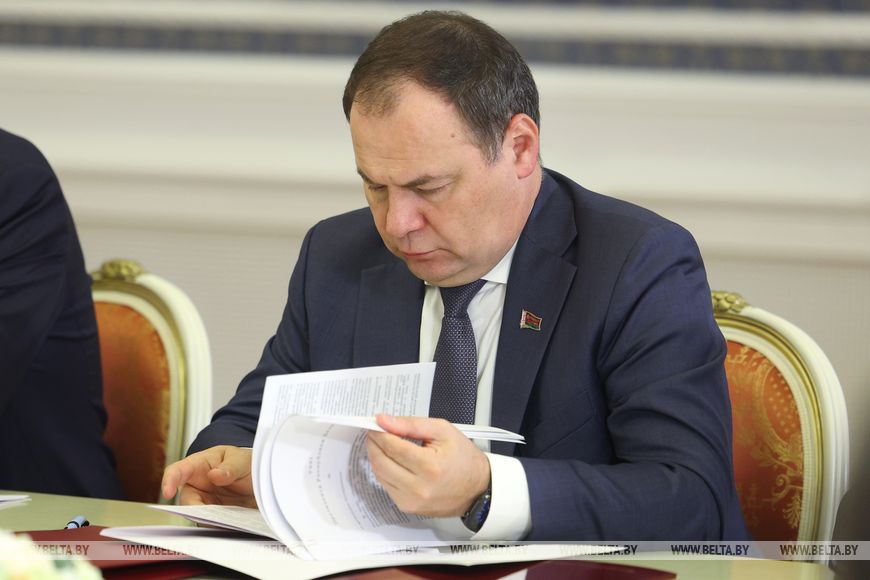
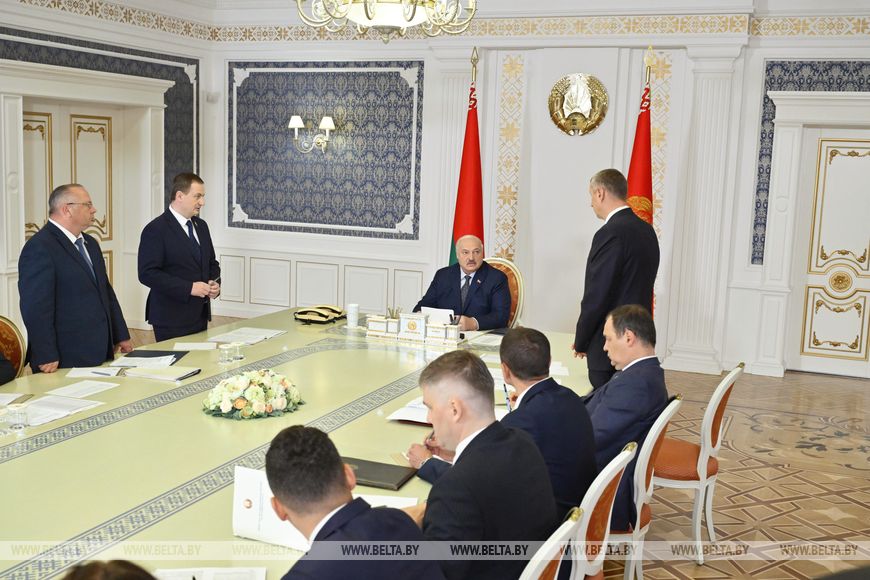
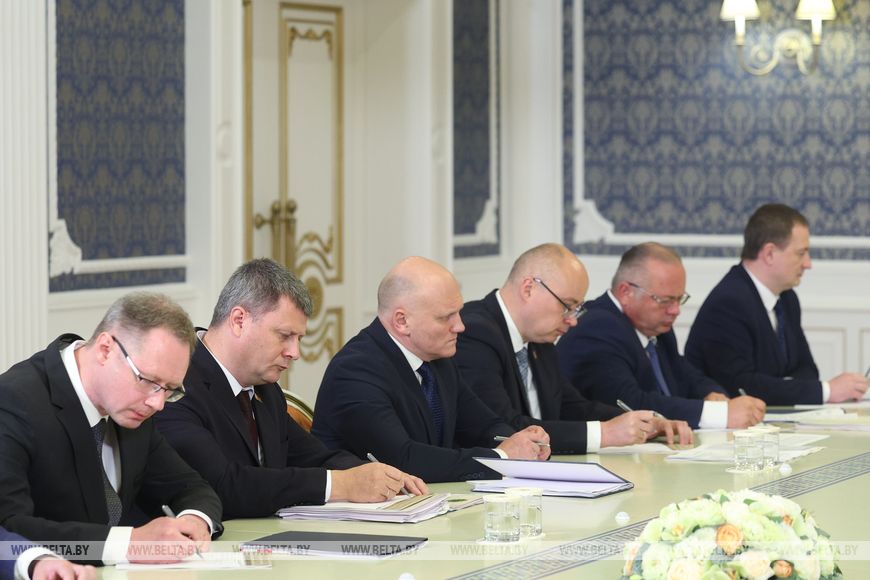
First Deputy Chairman of the Board of Belarus’ National Bank Aleksandr Yegorov was the one to put forward the initiative to run an experiment on setting up a crypto bank in the country. The proposal was generally approved by the president, he said. “At the same time, it was emphasized that the president should make all the decisions so that potential investors can see how it will function, first of all. Secondly, guarantees will be essentially provided by the state and signed by the president personally in the form of a decree,” Aleksandr Yegorov said.

The National Bank and the government are supposed to prepare a relevant draft decree within a month. It will be submitted to the head of state for signing.
The Belarusian president demanded to remove certain “gaps” and shortcomings in the revised version that were mentioned when the National Bank’s initiative was discussed during the meeting.

In particular, it was noted that by creating a crypto bank, Belarus will become a pioneer from the point of view of the global financial system and will gain unique experience. After all, at the moment, similar structures exist only in Switzerland, Singapore, and one of the U.S. states.
Aleksandr Yegorov specified that in Switzerland and Singapore, ordinary banks became crypto banks after being permitted to purchase cryptocurrencies, put them into circulation, and hold them on their balance sheets. The USA took a different path: it allowed the use of cryptocurrencies on par with traditional money and currencies. That is, citizens can store funds both in crypto and in traditional money. However, this approach has resulted in a major complication: how to ensure the safety of citizens’ funds and guarantee they can be recovered, given the high volatility and risks of the cryptocurrency market.
“Therefore, we propose to conduct an experiment,” Aleksandr Yegorov said at the meeting. “There is no clear, established legislation anywhere in the world. Accordingly, our task, as we see it, is to create a certain legislative jurisdiction together with investors, focusing on security, transparent operation of these institutions, and ensuring the safety of investors’ funds. We see the three-year experiment as an evolutionary regime, during which we will adjust this legislation together with investors based on how things develop.”
Not all meeting participants welcomed the proposal of the National Bank with open arms. Chairman of the State Control Committee Vasily Gerasimov noted that the SCC does not reject the idea of crypto banks but believes that such a decree should follow a package principle and contain clear mechanisms for the functioning of such banks (operating principles, oversight system) to assess all potential risks and their impact on the economy, the state budget, and how investor guarantees will be ensured.

Aleksandr Yegorov explained that all these factors were considered during the preparation of the draft decree and will be fine-tuned during its revision. He stated that it is proposed to create a crypto bank in the form of a non-bank commercial financial organization. Such structures already exist in Belarus, and clear legislation governs them: what operations they can perform, what the minimum authorized fund should be, etc. The National Bank handles the legislative regulation of their activities. “They are under the full supervision of the National Bank, submit reports according to our requirements, and our task will be to build a system of prudential indicators that will clearly show whether they [crypto banks] are engaged in good and useful business for the country or in some sort of fraud,” Aleksandr Yegorov noted.
Compared to other non-bank commercial financial organizations, crypto banks should have more restrictions. This issue, as the president instructed, must be finalized by all concerned agencies.
For example, attracting funds from individuals. “Our current position: the crypto bank should not attract funds from citizens of Belarus because there is a risk that these funds could be moved abroad, stolen, or their value could decrease due to a drop in cryptocurrency value,” the first deputy chairman of the NBRB Board said.
“Understanding that a crypto bank is a somewhat riskier venture than traditional banks, which have existed for centuries, we cannot expose to such risk our citizens and guarantee fund that would fully repay the money – within the crypto bank, for instance,” he added. In this regard, there is a proposal to allow the crypto bank to attract funds from, for example, non-resident individuals or resident individuals, but exclusively in the form of cryptocurrencies, not in Belarusian rubles, dollars, or euros.

As a result of the meeting, the Belarusian president clearly set the task that there should be no “gaps” in the decree. The framework must be designed so that any potential investor entering the market has a clear understanding of the rules. “This applies both to individual operations and to the overall functioning of the institutions [of the crypto bank], including taxation, compliance with AML/CFT [a mandatory document for organizations, developed to combat money laundering and the financing of terrorism],” Aleksandr Yegorov clarified.
He emphasized that Belarus is open to investors from different countries regarding the development of the cryptocurrency market. “Based on the growing turnover figures of our crypto exchanges and the potential demand for an institution like a crypto bank, we see that both the existing regulation is very interesting to investors, and the potential regulation we want to introduce will be a certain breakthrough not only regionally but at the level of all countries,” the first deputy chairman of the NBRB Board stated.





